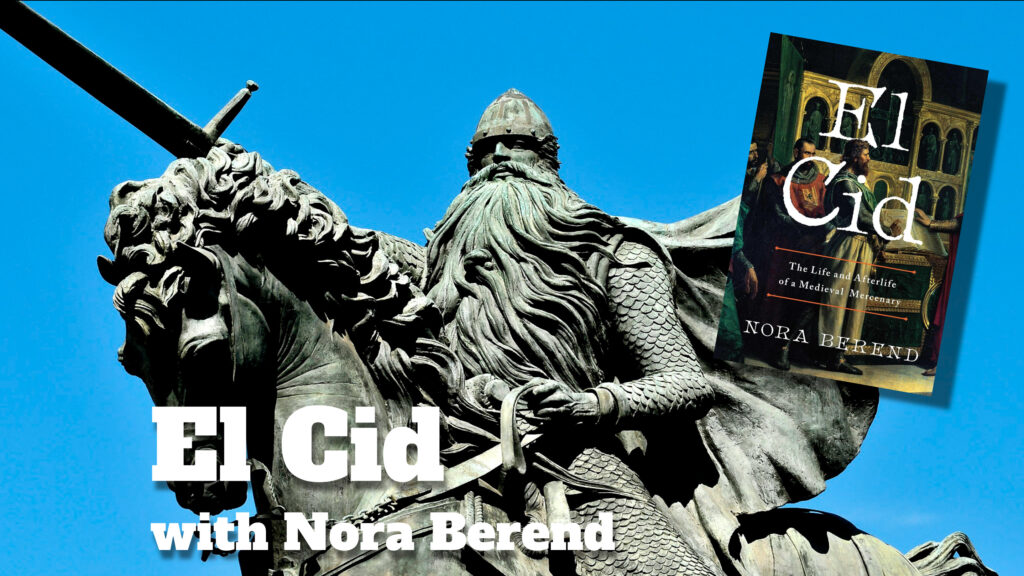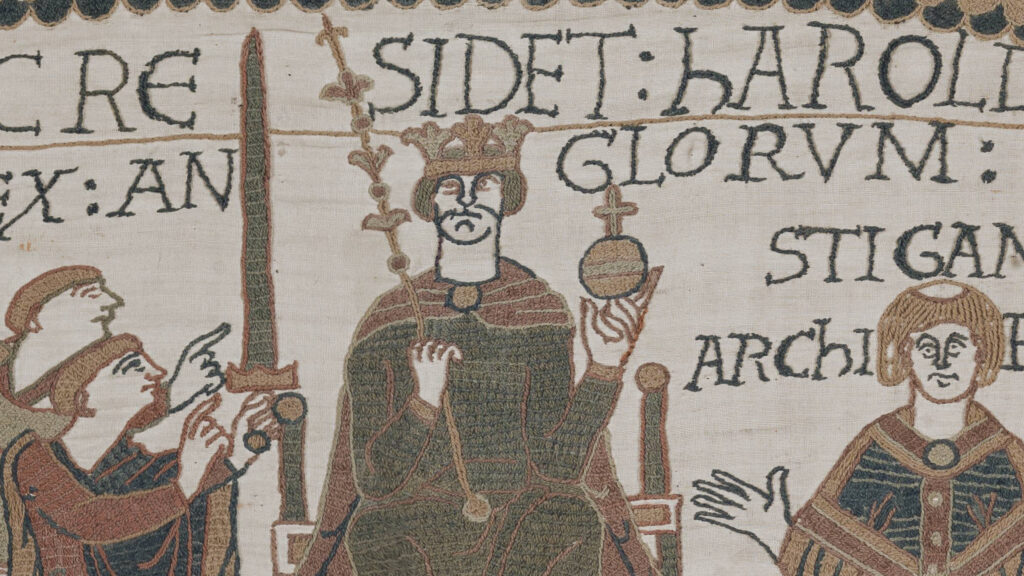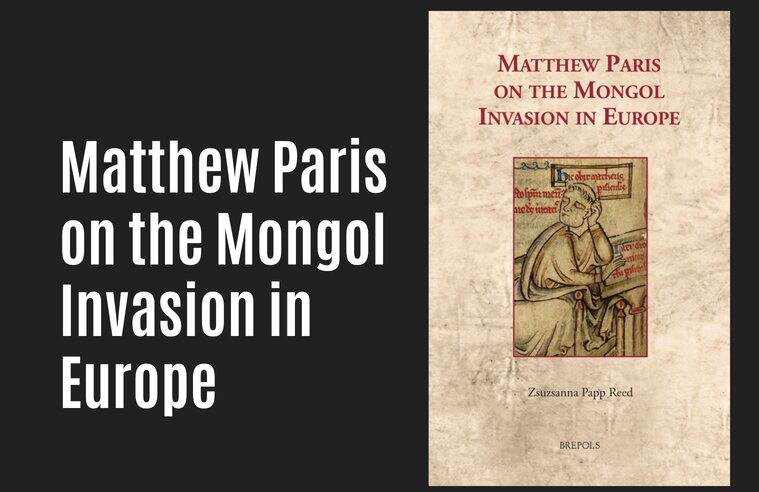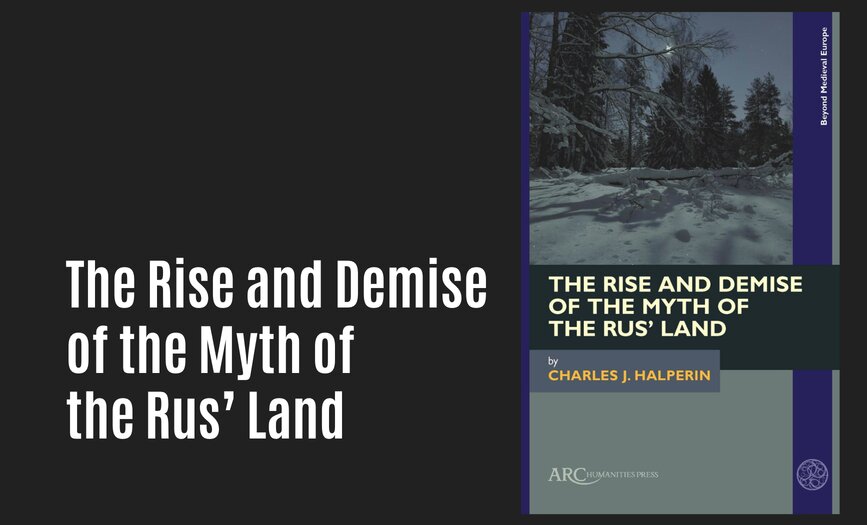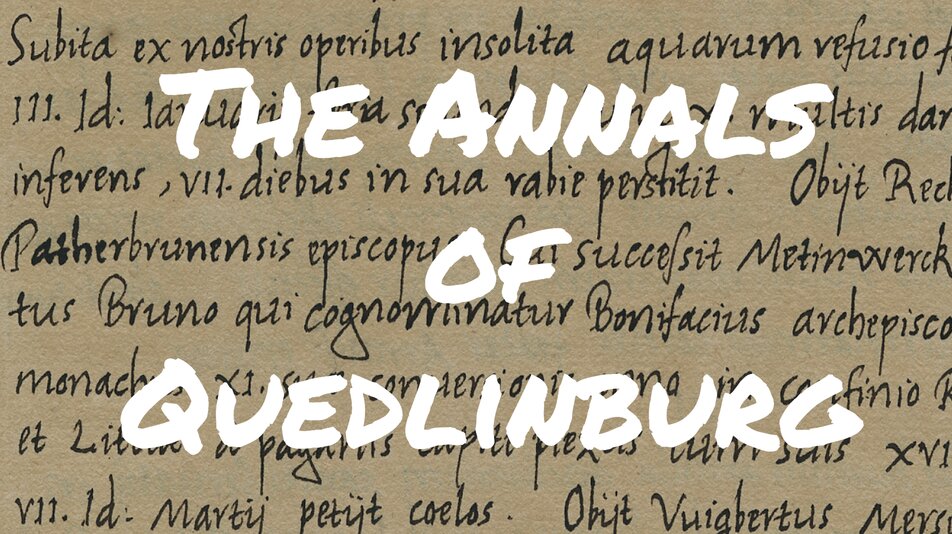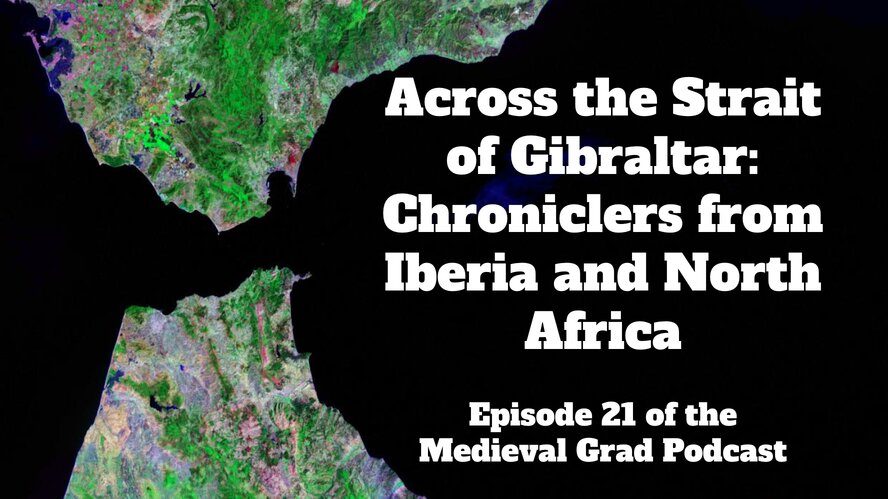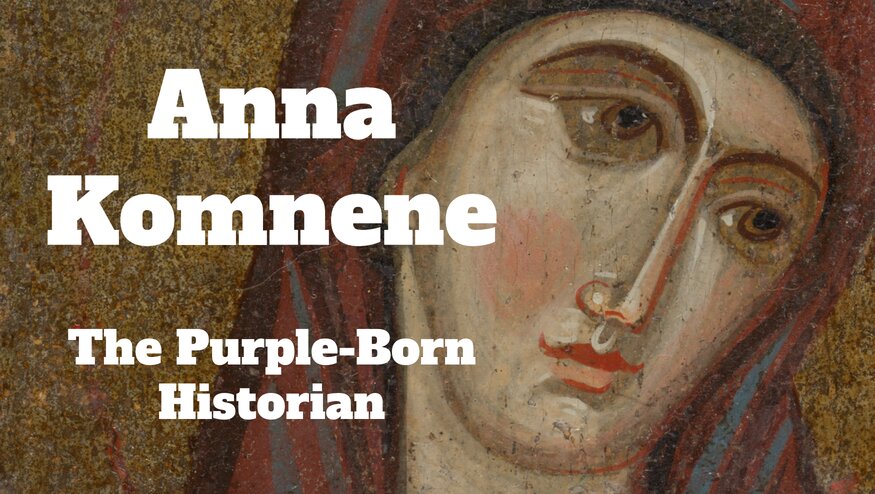El Cid with Nora Berend
This week on The Medieval Podcast, Danièle speaks with Nora Berend about the real Rodrigo Díaz, the astonishing way his legend grew and changed over time, and how El Cid is still being used as a political tool in the modern world.
The Anglo-Saxon Chronicle Was Edited to Favour Harold, Study Finds
New research reveals that key entries in the Anglo-Saxon Chronicle were revised after 1066 to support Harold Godwinson’s claim to the throne—while omitting events that could have undermined it.
New Medieval Books: Ibn Khaldūn: Political Thought
Thirty-five selections from the writings of the 14th-century thinker Ibn Khaldūn, these translated texts reveal his thoughts on history, the state, cities and more.
The Children’s Crusade: A Change of Interpretation Over Time
One fascinating yet unexamined part about this strange Children’s Crusade of 1212 is less so the facts behind the story, and rather how the story changes over time.
Who is ‘Islamic History’ about?, with Christian Sahner
A conversation with Christian Sahner about the notion of Islamic history as a field of study. What does it prioritize, who does it tend to see most, and what about everyone else? No field-name is perfect; they all have advantages and disadvantages, and we need to be clear-eyed about them.
Medieval Europe without a “core”, with Christian Raffensperger
A conversation with Christian Raffensperger — one hundred episodes after our previous one! — on medieval European rulership from Iberia and Scandinavia to Rus’ and Constantinople. We talk about succession and co-rulership and titles in ways that don’t prioritize the British, French, and German models.
Byzantium and Balkan national identities, with Diana Mishkova
A conversation with Diana Mishkova about how the national historiographies of Turkey, Greece, Bulgaria, Serbia, and Romania cope with Byzantium — how they try to appropriate, incorporate, circumvent, or abjure it, and so always reinvent it in the process.
The Alternative Histories of the Norman Conquest of England
Have you read the version where Harold Godwinson survived the Battle of Hastings?
How to de-colonize Byzantine Studies, with Ben Anderson and Mirela Ivanova
A conversation with Ben Anderson and returning guest Mirela Ivanova on their co-edited volume of papers on the question Is Byzantine Studies a Colonialist Discipline? Toward a Critical Historiography. We talk about how colonial, imperialist, or exploitative practices and ideologies have marked the history of our field, whether by making it complicit in them or by colonizing it.
Our new book on the armies, and on revisionism in history, with Marion Kruse
In this 100th episode of Byzantium & Friends, Marion and Anthony talk about their new co-authored book, The Field Armies of the East Roman Empire, 361-630
The Most Controversial Books in Medieval Studies
Ten books that caused controversy in the field of medieval studies.
New Medieval Books: Rival Byzantiums
A look at how the Byzantine Empire came to be viewed in five countries – Bulgaria, Greece, Romania, Serbia and Turkey.
The Story of Moses at the Mongol Court
The extant paintings prominently feature the life of Moses in a synthesis of stylistic sources, reflecting a unique cosmopolitan union of history and religion.
At the dawn of Byzantine Studies: Martin Crusius (1526-1607), with Richard Calis
A conversation with Richard Calis about Martin Crusius (aka Kraus: 1526-1607 AD), one of the first philologist-historians who tried to reconstruct Byzantine history from the sources. We talk about his interest in the Greek language and the Ottoman empire, in using Byzantine sources to understand antiquity, and his working methods — all in an era before there was much scholarship to guide him.
New Medieval Books: Procopius of Caesarea: The Persian Wars: A Historical Commentary
Geoffrey Greatrex’ magnum opus, this book complements his translation of The Persian Wars.
New Medieval Books: Matthew Paris on the Mongol Invasion in Europe
This book can be seen as a case study to help answer the author’s question: “What is history and how did Matthew view his duty as a historian?”
New Medieval Books: The Rise and Demise of the Myth of the Rus’ Land
This open-access book examines the concept of the Rus’ Land and how modern Russian nationalism made it the equivalent of “Russia.” It looks at how this myth developed during the medieval and early modern periods.
On writing narrative history
Why and how should we write narrative histories? What do they accomplish in the overall economy of the scholarly production of knowledge?
The Annals of Clonmacnoise
Lecture focusing on Armagh Robinson MS A – the oldest manuscript of Conall Mag Eochagáin’s English translation of Irish Annals
A medieval chronicle written by a woman: The Annals of Quedlinburg
Relatively few surviving works from the Middle Ages were written by women. One of them is a monastic chronicle known as the Annals of Quedlinburg, created in the early eleventh century. A look into this work reveals some interesting insights into the writer and her abbey.
The Deeds of Philip Augustus with Cecilia Gaposchkin and Sean Field
As a teenage king, a crusader, and a bigamist, Philip Augustus’ life story is filled with enough saintliness and scandal to satisfy the appetites of any medieval chronicler. This week, Danièle speaks with Cecilia Gaposchkin and Sean Field about the life of Philip II Augustus, as recorded by a contemporary monk.
Across the Strait of Gibraltar: Chroniclers from Iberia and North Africa
We are bridging communities across the sea in this episode of the Medieval Grad Podcast. Emma Snowden talks with Lucie Laumonier about her dissertation, “Bridging the Strait: The Shared History of Iberia and North Africa in Medieval Muslim and Christian Chronicles.”
Anna Komnene: The Purple-Born Historian
Anna’s legacy is not her political vivacity but the impressive history she wrote of her father’s reign, fittingly called the Alexiad.
The Rescue of Armenian Historiography and the Chronicle of Matthew of Edessa
Of the thirty-five manuscripts that remain of the 12th-century Chronicle of Matthew of Edessa, not a single one dates from before 1590, but over half of them were produced by 1700.
V for Viking
I want to talk a little bit about aspects of my more public-facing academic research and public engagement
